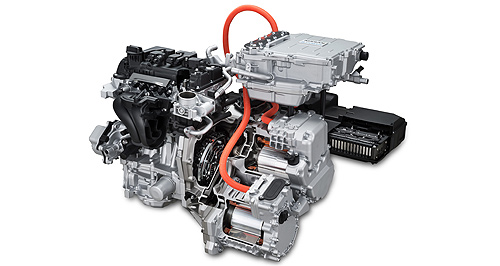News - Nissan - Note - e-PowerNissan casting plant shows its mettleTaking Notes: Nissan’s Note is now available in Japan powered by a range-extended hybrid powertrain, and it could be coming Down Under. Note e-Power could come to Australian Nissan range with home-grown components9 Dec 2016 NISSAN Casting Australia Plant (NCAP) has confirmed that the mysterious components it revealed to GoAuto in July this year are integral to the freshly announced Note e-Power compact hatch, and the tiny hybrid is a possible addition for the local line-up. In November, the Japanese car-maker unveiled the series hybrid version of its little town car but it is now known that the model has components under its bonnet that originate at the highly specialised factory in Melbourne’s eastern suburbs. The Note e-Power is a range-extended EV with an electric front-drive powertrain that is fed by a battery and generator powered by a small petrol engine, and two critical components – the stator housing and power-management water jacket – are stamped with the made-in-Australia kangaroo. Speaking at the official announcement last week, Nissan Australia managing director and CEO Richard Emery said the hybrid Note would only be sold in Japan for now, but the car-maker would consider it for the local line-up when production constraints loosened. “It’s certainly an option,” he said. “When they have got capacity and they offer it to other markets around the world we will certainly see if it can work for us. “At this time, because it’s using capacity fully for Japan it’s not an option for us but if it does become an option we would certainly be interested. We’re kind of invested in it a little bit.” Nissan continues to offer the pure electric Leaf – the world’s best selling pure EV – in the Australian range and Mr Emery said offering more choice in the alternative energy segment could present a more compelling choice. “Our attitude always has been to be a pioneer in that space and that’s certainly going to continue. The option of having Note e-Power now might give us that extra push along.” While the local automotive manufacturing industry is in a state of flux, Nissan’s casting operations in Dandenong, Victoria continue to oppose an uncertain future with a staunch 196-strong team, ongoing contracts and more in the pipeline. The factory’s managing director Peter Jones confirmed that the three components that form the motor and cooling jacket were for the hybrid Note. “Two weeks ago, Nissan announced the launch of the e-Note,” he said. “One of the areas we lacked in the Japanese market was to have a hybrid option in that smaller car so we launched the Note e-Power. “For a number months we have been working in the background. We’ve had some of our compatriots come and visit and see a lot of these parts but we couldn’t tell them what it was for. These parts are for the Note e-Power.” While the Australian-made parts are helping to safeguard the plant’s future alongside a number of other speciality cast alloy components, Mr Jones confirmed that the company was already negotiating a number of new contracts. No details of the next components are available at this stage, but Mr Jones revealed that the work was “secured” and deliveries would start “in a couple of years”. “It will be a really good volume for us and they are not dissimilar (to the current components). The technology will be the same, they will look a little different and they will go into a different car. “We’ll do the contracts next year then we’ll know how long it’s going to go for. It’s all about filling that future order book.” Quite which model the new components will be for remains a mystery for now, but one possibility could be the BladeGlider electric sportscar, which has surfaced twice and appears to be edging toward a production version. During quieter years, Mr Jones was able to retain the entire NCAP team with a flexible part-time workforce and variable shifts, but with the new contracts the factory is now working seven-day shifts with all employees full time. Despite the facility running at near-maximum capacity, Mr Jones said the company can keep up and a number of possibilities were being explored to boost capacity if needed. “I think we are going to have to reshuffle our schedule. It may well be that we have to grow the number of employees but it may well be that we have to grow the number of machines, which is a further capital investment. It may well be that we look at what parts we are making. “Some of those may come off as models cease and then we run these ones.” In addition to the staple of cast aluminium alloy parts, the factory also fabricates steel tow bars for the Nissan Navara and while the sideline has been hanging in the balance to possibly make way for more casting, Mr Jones said the business was still productive and would continue for now.  Read more3rd of November 2016  Nissan debuts efficient e-Power drivetrainJapan-only Note e-Power first to get Nissan’s new petrol-electric range-extender5th of August 2016  Nissan BladeGlider prototype surfaces in RioTokyo show concept evolves into working Nissan BladeGlider prototype in Brazil26th of July 2016  Exclusive: Casting remains cash cow for NCAPNissan casting plant sticks with towbar production but casting still core business |
Click to shareNissan articlesResearch Nissan Motor industry news |
















Facebook Twitter Instagram